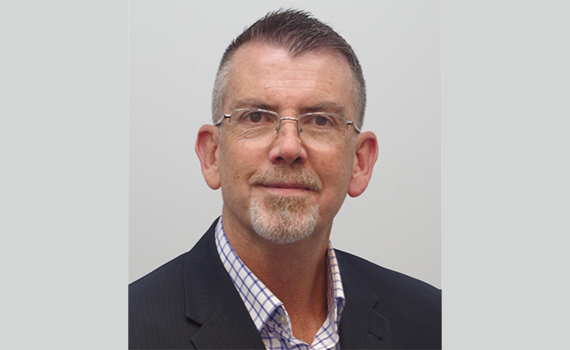Paying forward – Identify and Speaking Up about Disabilities: Dr Hein Scheffer
04 May 2023
comments: 0

April 2023 marked a year that I have been working at EEAST, and during this past year, I chaired several senior leadership group meetings. These are aimed to update our senior leadership group with developments in the Trust, but also to create an open dialogue between them and the Executive. About 15 minutes into one of these sessions in the early months of my employment with EEAST, and much to my surprise, I found myself sharing that I am a survivor of cancer. This is not something I had planned to share, but it felt right, and my colleagues were generous both in listening to me and in sharing their own similar stories.
Sharing with my colleagues represented a huge sea change in my attitude. I spoke about the huge impact on my mental health when some 10 years ago I had driven myself to burn out and exhaustion through refusing to face my own feelings of ‘weakness’. At the time, I did not speak up or ask for help when I needed to, because I did not want to appear weak. So instead, I adopted the traditional South African resilience of my birth country, or rather the British ‘stiff upper lip’ of my new homeland and ‘sucked it up’. But at what cost?
It’s traditional to believe that men do not like to talk about their feelings. This was very much the case in South Africa, where I was born. I was brought up not to cry or talk about my feelings or, indeed, any personal matters.
Overall, this is no different in the United Kingdom where traditionally men were generally encouraged to keep quiet about their feelings. However, we have seen an increasing willingness for public figures to speak up. 2017 saw an important turning point when the Prince of Wales and his brother spoke about the impact of the death of their mother, Princess Diana. They reflected on the psychological scars that this terrible event left on them and emphasised the importance of talking about these matters more openly. Both the current Prince and Princess of Wales have been very vocal in supporting mental health issues.
My experience, just more than ten years ago, was very different. On Friday 1 February 2013, in a hospital in the Southwest of England, at the age of 47, I was diagnosed with prostate cancer. When I told my family in South Africa that I had cancer they were so uncomfortable that they changed the subject abruptly. This made handling my illness and its consequences much more challenging, as I felt I should not talk about this to anyone. In fact, for the next three years I could not speak about it at all.
Other than the time I took off to recover from my surgery I did not take any sick leave during the seven weeks that I was having radiotherapy. I continued to work full time while visiting the radiology department in the hospital – my workplace – daily for my radiotherapy, not only carrying on with my normal workload but taking on more work. It was only later that I realised I had been in denial; that I tried so hard to be in control, to be strong, that when I realised, I was not, it resulted in burn-out, with all its consequences.
One of the unexpected impacts, too, of having cancer is that I discovered that under the Equality Act 2010, I and other cancer survivors are classified as having a disability with the same rights under the act as someone with a physical, both visible and non-visible and / or mental disability. This, sadly, is another area where people can be reticent to speak up. But if we don’t do so – how can our colleagues, and importantly our line manager, support us?
Things have changed this past year. At a personal level, I have been able to speak up about what I have been through. I share that experience in the hope that it will encourage others to speak up and identify their disabilities, even if only on ESR. Things have changed for me; I am grateful that ten years later I am here to share my story. I like to believe as part of our cultural change journey within EEAST, that we do not need people to ‘suck it up’. We are human beings who bring our whole self to work every day.
Speaking up about your mental health is not a sign of weakness but helps us cope better. I have experienced this first hand, that speaking up, speaking out, helps heal the wounds of the past. We can’t do anything about the past, but we have some control over today and tomorrow, and by speaking up and speaking out, we can have a much happier future.
So, I would urge our people to please update the disability section on ESR so that we have a true picture of our colleagues with disabilities. Secondly, please speak up, share your story, so that the people around you know to help and support you better. In this way I have found that I can use my experiences to ‘pay it forward’ and help others through being open about my experiences and feelings.
If you would like to talk to someone, please contact either the Men’s Wellbeing Network mwn@eastamb.nhs.uk, or the Disability Network: disabilitysupportnetwork@eastamb.nhs.uk
